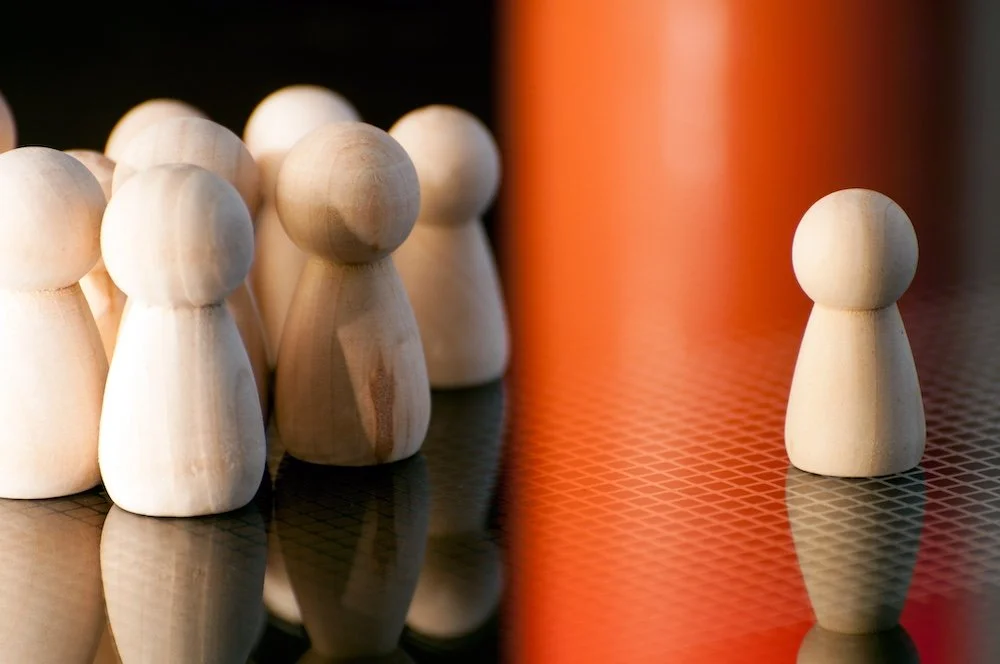Day 38: Bias
By: Sara Barnes
Biases are part of the human condition.
And biases themselves aren't necessarily good or bad -- it’s the actions fueled by the biases that are problematic. Noticing biases, learning to be aware, and monitoring behavior is part of adult life. Many of us have made great strides when it comes to reigning in biases, but there's always room for self-reflection and improvement.
Bias awareness -- learning about how biased actions hurt others -- is very important. The more we all do in this area, the more likely we can avoid, resolve and understand interpersonal conflicts in our lives. Because biases are conflict causers.
Biases about groups of people:
The Harvard implicit bias test is a great resource for you to learn about your own biases and contribute to research. Over four decades, researchers have provided these surveys and gathered data from millions of participants around the world. Consider taking a few of these tests -- you'll contribute data while learning more about yourself.
What to do if I discover I'm biased, and I don’t want to be?
Learn more. Most biases are based on topical or incomplete knowledge. Work to keep your natural biases in check by pursuing a personal curriculum of learning, expanding your knowledge base about biased thinking, thinking beyond anecdotal incidents, and becoming aware of biased actions that hurt others.
Conflicts based on biased actions of ourselves or others:
Many conflicts are fueled by unexamined biases. I’ve become more aware of biases around me -- in myself and in others. Learning more about these biases, I’m trying to slow my thinking down and self-reflect, so I don’t find myself controlled by my biases.
When I find myself having acted in a way that might have been biased, I try to be humble, name my actions, and pledge to do better. Just like everyone else, I'm a work in progress. If you've caught yourself acting with bias, give yourself a break, apologize sincerely, and reflect on ways to improve going forward, such as using the PAUSE technique to help you off the bias highway:
P – Pay Attention to what’s beneath the judgment: Event vs. Interpretation.
A – Acknowledge or identify your reaction/interpretation/judgments.
U – Understand other possible reactions/interpretations/judgments.
S – Search for constructive, empowering, productive ways to manage.
E – Execute your action plan. Act consistently with what makes the most sense.
Consider telling people when you've had bias targeted at you:
If you have the strength, energy and desire, it can be helpful to let others know when you experienced their actions as biased. Telling people how they have affected you expands other's awareness and gives you the chance to make bias more understood.
Cognitive biases:
Here's a fascinating and valuable resource about cognitive biases - those illogical unproductive mind tricks that lead us into mental mistakes.
Take a look at this remarkable chart, the cognitive bias codex, which shows 188 known human cognitive biases. If you access it online, you can click on explanations of each bias and learn more about how our minds have evolved to think in strange and interesting ways.
Normalizing the discussion of bias:
At MV Mediation, we talk about our biases all the time. Mediators share with their colleagues when they feel biased and work together to not act in biased ways. Much of our professional development is also focused on becoming aware and overcoming biases.
Bias awareness and learning how to act in more equitable ways is a journey we all play an important part in. Bias awareness is conflict resolution.
Ramadan, the Islamic holiday, travels around the calendar based on a 354 day lunar year. In 2025, Ramadan begins on February 28. Celebrations include breaking the daily fast in the evening with family and friends. “Eid Mubarak!” is the traditional greeting.

